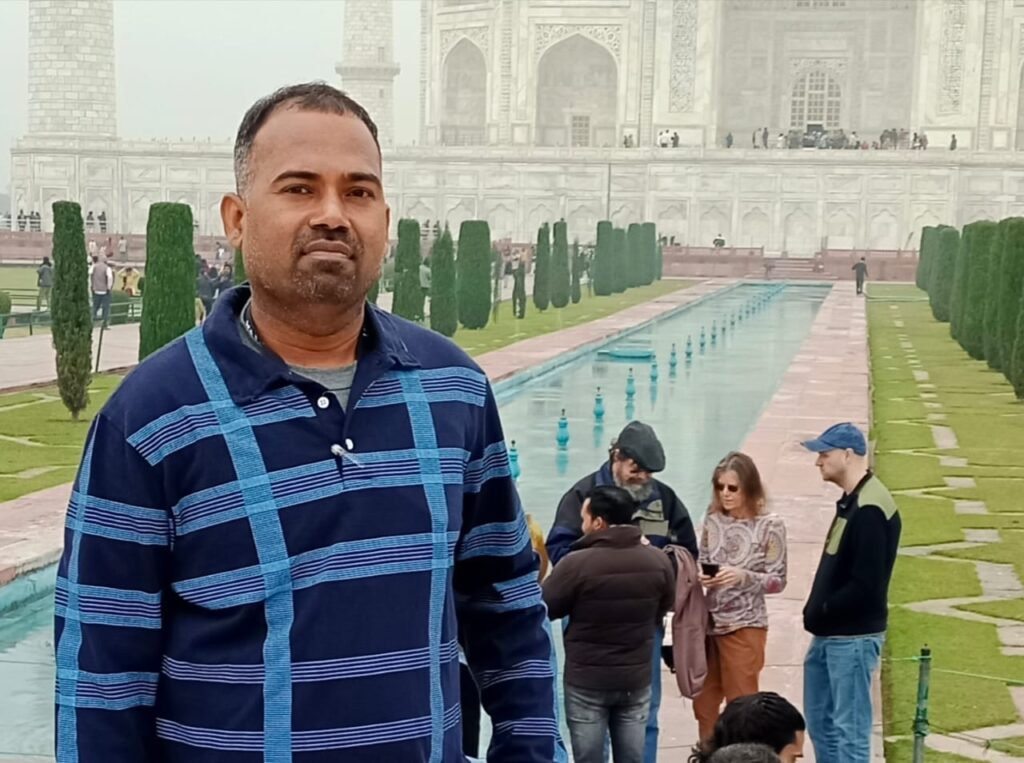
Mumbai, 18th November 2024 (GNI): Blue City’s -‘The Poetic Soul’, Recent Works by contemporary well-known artist, Madan Pawar , Jehangir Art Gallery, 161-B, M. G. Road, Kala Ghoda, Mumbai 400 001, From: 19th to 25th November 2024, Timing: 11am to 7pm, Contact: +91 9765504620
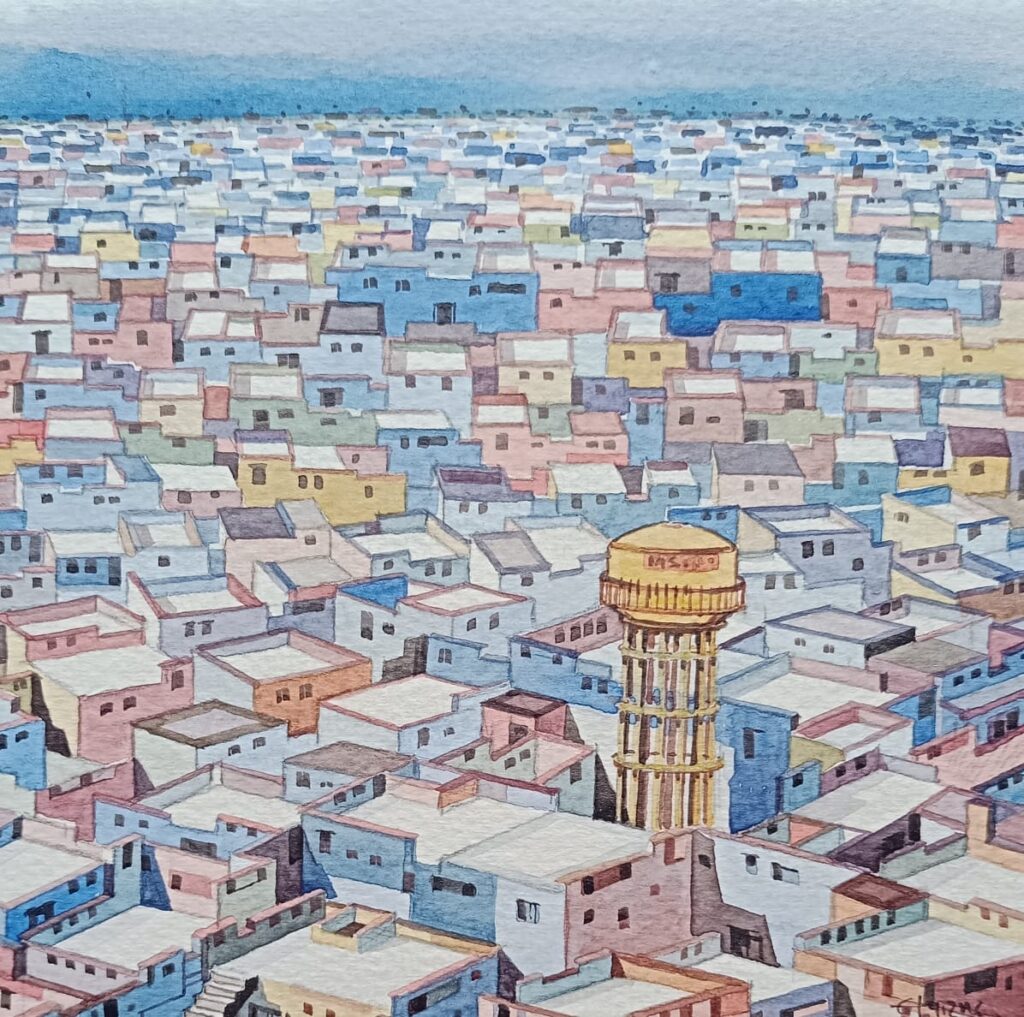
This show will be inaugurated on 19th November 2024 at 5pm by Honourable Guests Parvez Damania(Mumbai) and Ms. Sanjana Shah(Tao Art Gallery, Mumbai.
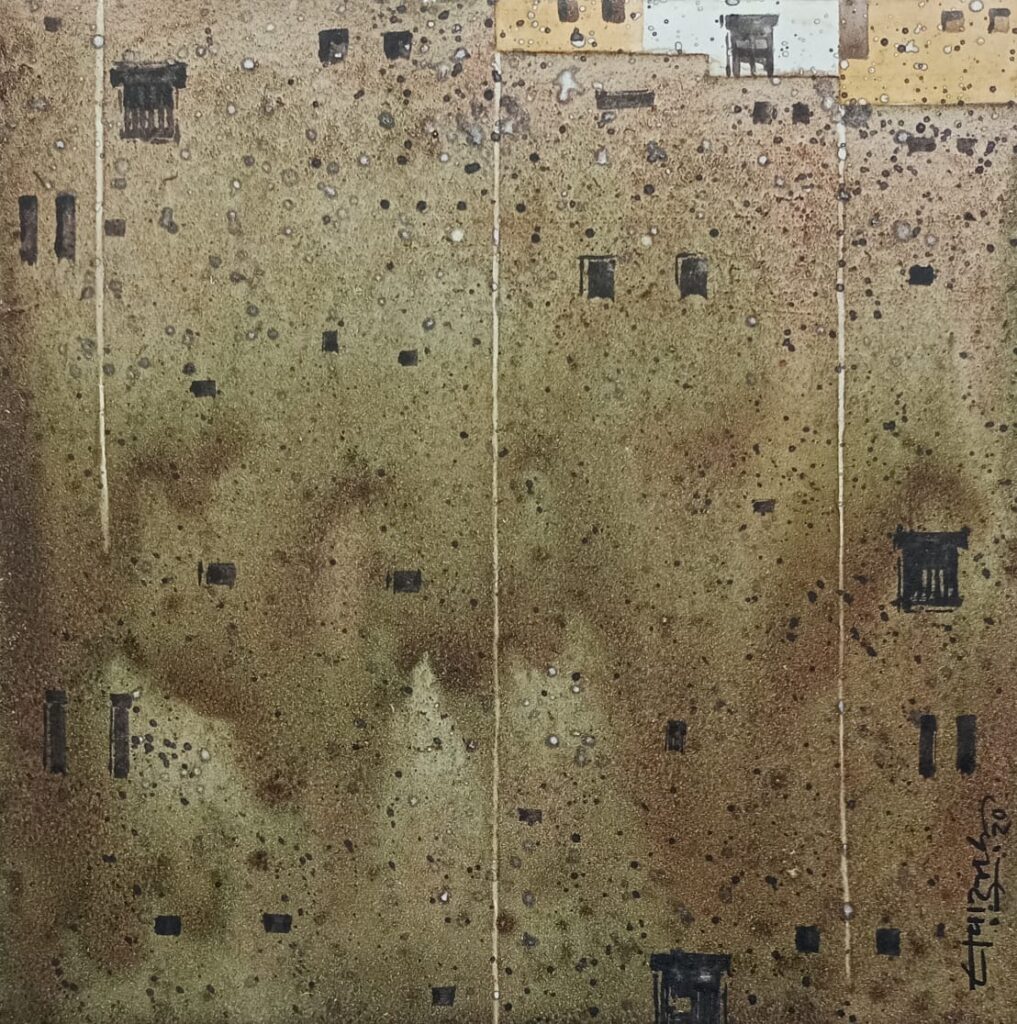
Madan Pawar does not abstract human settlements but rather renders them in shapes and hues that celebrate the ingenuity of those who build them despite the challenge of poverty and space. Skylines are not always tall towers – flat roofs or Chaths as they are called in India are communal places. The hues of the walls of the city of Jodhpur even though they are coloured convivial blue to protect from the sun they also serve as caste markers. Behind the immense beauty of Rajasthan there are deep divisions of caste and its continuous celebration.
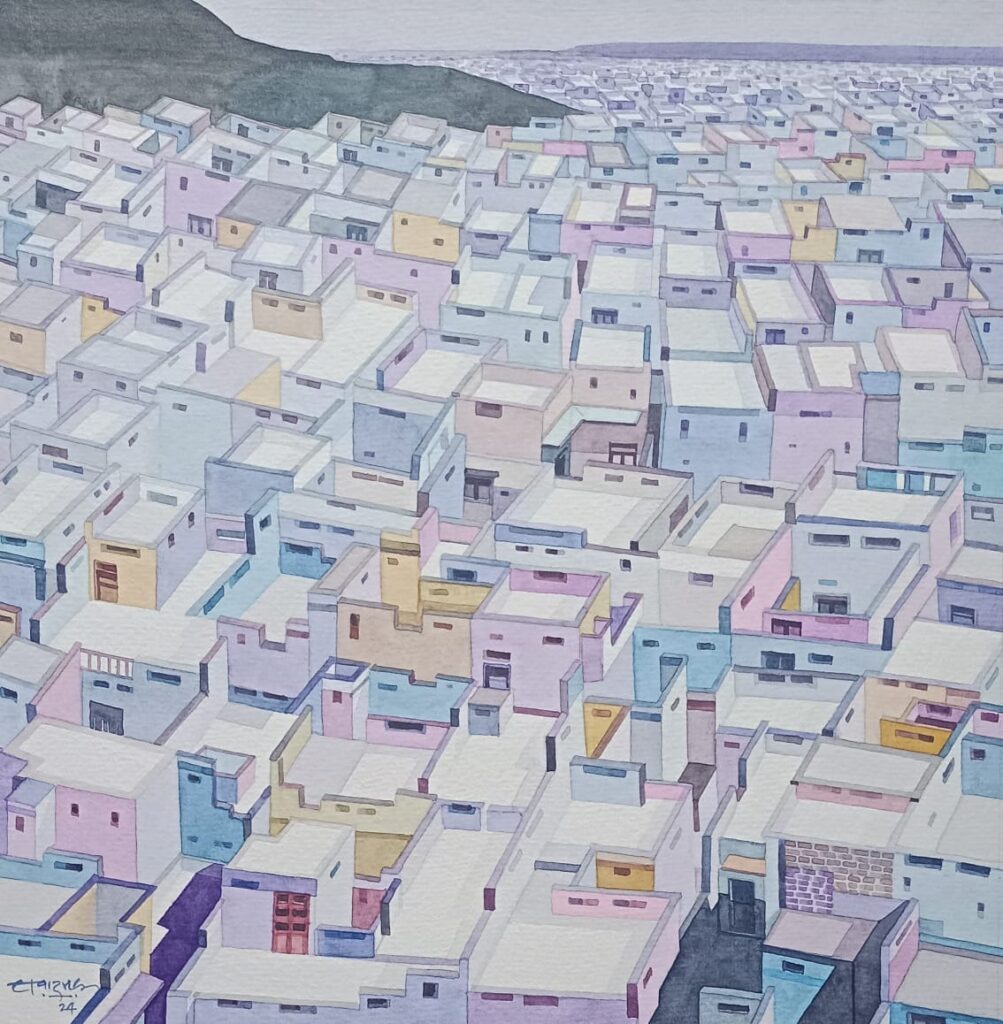
An art school research trip to Rajasthan is when Madan Pawar discovered Jodhpur. Jodhpur is a city on the edge of the Thar desert from where wades of sand extend across the districts of Barmer and Jaisalmer into Pakistan until the fort towns of Umerkot in Tharparkar and Derawar in Bahawalpur. This is the region of the Marwar and the Dhatki, a community with a distinct language, ways of society, cuisine, music and clothing all attuned to the desert. A distinct frugality is seen in the way of life and thus are the ways of living. Homes are mud houses built of red stone created to insulate against the hot summers and cold winds of the winters.
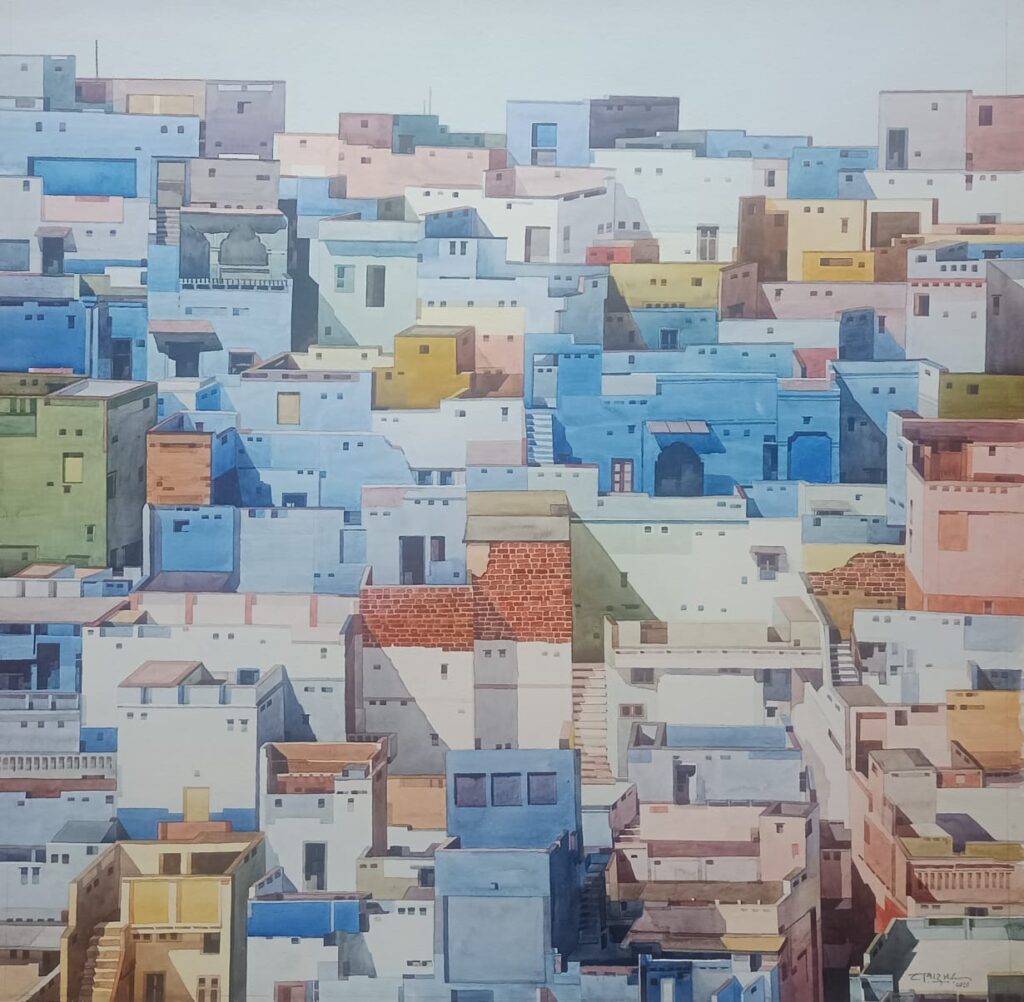
On the slopes of the Mehrangarh Fort of Jodhpur just above the grid like modern city built by the Maharajas in the 20th century is the old city. Here different castes inhabit different quarters called Mohallas. Each one of them is adjacent to a gate or a Pol. We have people working with bamboo, the dyers making the distinct multic-oloured bandhani turbans and sarees, the sonars or goldsmiths gather on many thoroughfares and the Brahmins who hold pockets across these places give name to the city – the Blue City. Fortunately in the Republic of India people are free to not use colour as a social class or caste marker and the colour blue is the hue for social reform. The homes across Jodhpur are made of a lime mortar called ‘Surkhi Choona’, the blue glaze comes from the copper sulphate used in the lime mortar to protect it from termites. This use of indigo forms the colours of the walls giving the panorama from the fort a distinct azure tint as we see the homes gather around the slopes.
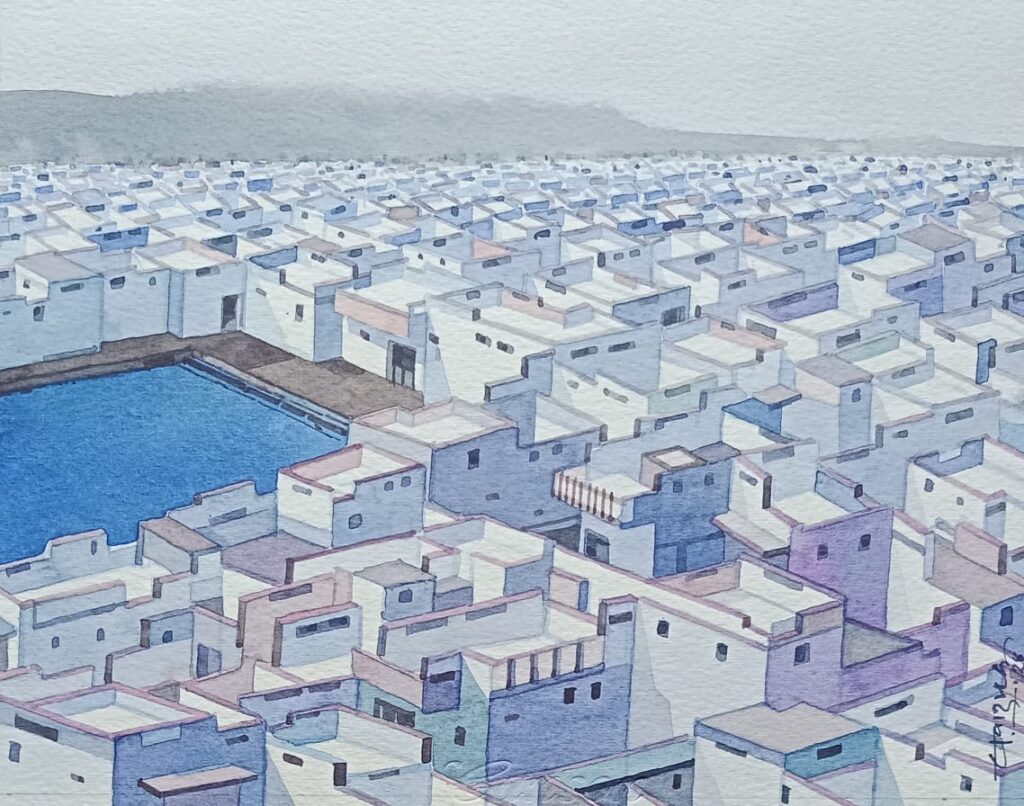
Madan Pawar is a trained painter and printmaker from the Sir JJ School of Arts, Mumbai and is an artist drawn to forms that allow him to explore colour using the prisms of grids. His aerial studies are formed through grids of architecture that allow him to fill in colour that form patterns which are magical to the eye. Landscape painting holding realism in perspective was introduced through the colonial schools of art in the 18th century. In Rajasthan miniature painting across the Rajput schools, have a surreal magical rendition to represent divinity, myth and fantasy. Madan Pawar to paint Jodhpur takes cues from Paul Cezanne’s fauvist landscapes of Mediterranean towns in the south of France. Towns around Avignon, Saint-Rémy-de-Provence, Les Baux dès Provence and Aix-Marseille hold similar planning in terms of inhabitants and architectural structures – saving the inhabitants from the many days of the sun. Jodhpur has the most number of bright days in India and one look at the old city from the vantage point of the Mehrangarh fort we see the number of solar panels air-conditioning tourist homestays that most old city houses today serve as in the 21str century.
Madan is not a painter defined by fauvism, in fact his images have sharp edges and boxes that justle each other on geometric angles. The effect almost is a prism Vasarely would have been envious of but it is one that arrives after a lengthy three month use of technique, precision and a personal colour theory. The juxtaposition with colour to form scapes that hold a very pleasing sight to the city by forming a spectrum of patterns is very unique. I have known Madan over the last 15 years as an artist and it has surprised me how he has grown as a painter. He has worked with architects to closer align his practice to them by helping them reimagine folk architecture. They often commission him to work on projects where they are re-interpreting Indian architecture and its resonances with materiality. Paul Cezanne’s renditions of Mont Sainte-Victoire (1904 – 06) the mountain that overlooks Aix en Provence and separates it from Marseille is where the Cezanne finds himself in his painting practice. Madan Pawar’s renditions of ‘Jodhpore en Azur Bleue’ in many hues, shapes and colour holds the light an artist seeks in his painting.
Sumesh-Manoj-Sharma writer and curator, Bombay. (ends GNI)

Be the first to comment on "Blue City’s -‘The Poetic Soul’ A Solo Show of Paintings by well-known artist Madan Pawar at Jehangir Art Gallery in Mumbai"